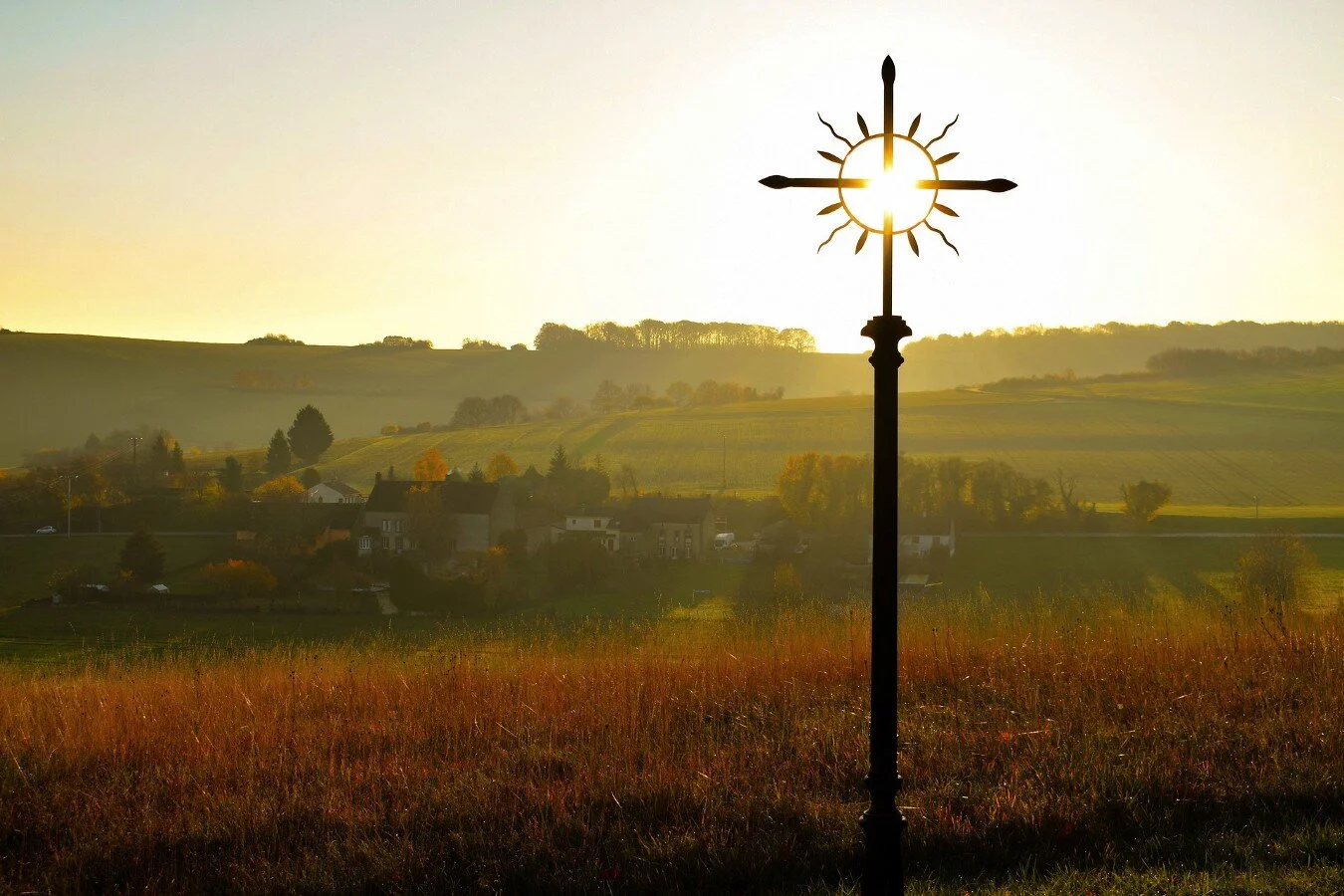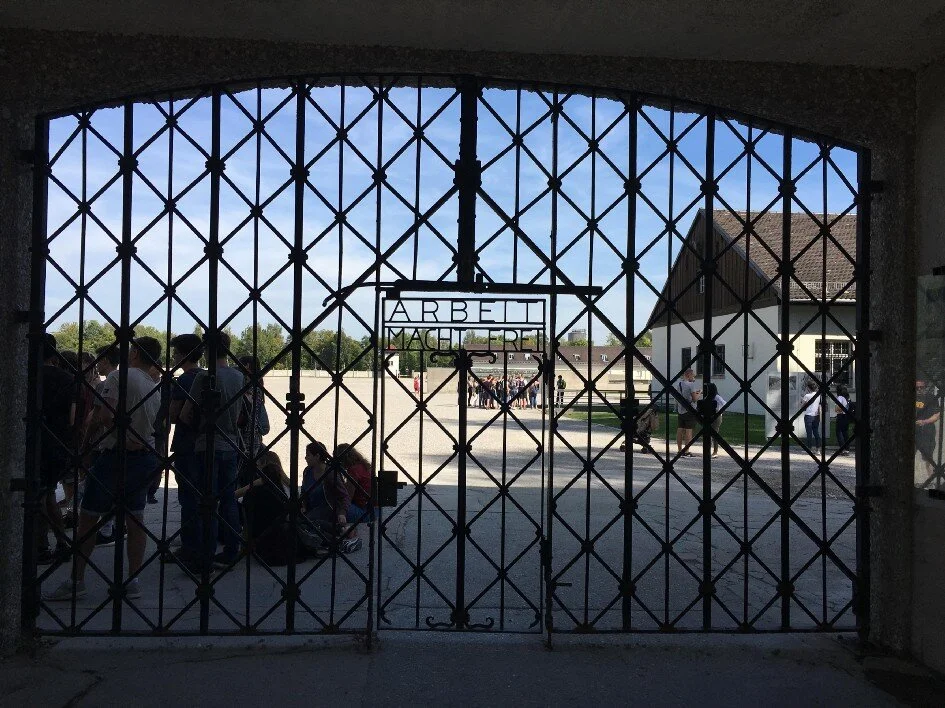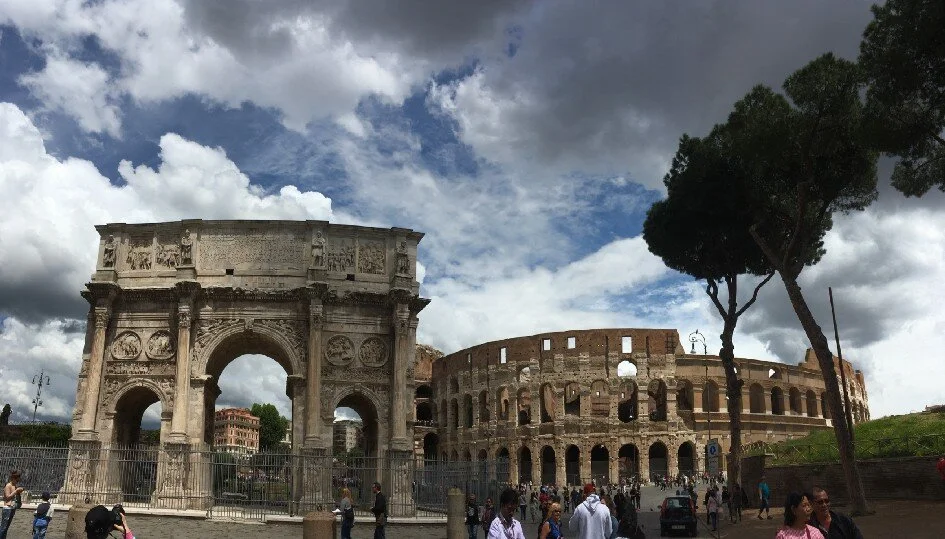In this Sign Conquer
Christian Nationalism Part 4
“Without distinctive actions, Christian witness will rely on force.”
— Alan Kreider
When Christians no longer live like Jesus…when our tangible actions no longer reveal the goodness of our God…we only have one play: to gain power, control, and force people to fall in line behind us.
This is the hallmark of Christian nationalism, whether in the Holy Roman Empire, during the Spanish Inquisition, Nazi Germany, or even today in the USA. It’s wherever Christians are blended into, compromising with, or co-opting the power of “empire”… becoming the persecutors unto others that we fear for ourselves.
El Castillo de San Jorge y La Inquisición (1480–1820)
Last year, I had the joy of spending three weeks in Spain. One of these weeks was in Andalucía (the south)— primarily Sevilla. Sevilla is a gorgeous city — the perfect size for walking, delicious food, amazing architecture — I’d love to go back and stay a while! On our third day there, we crossed the Puente de Isabel II over the river and entered Triana — a section of the city especially known for painted ceramics, bull fighters, flamenco, and its overall bohemian vibes. Almost immediately on the other side of the bridge is the Mercado de Triana — a normal market filled with all sorts of food vendors: butchers, fishmongers, cheese stalls, fruit & veggies, pasta, etc.
But it’s also not a normal market. It is built on top of the ruins of The Castle of Saint Jorge and the Inquisition!
These ruins can be viewed for free, so we ventured down for a walk-through of the former headquarters of the Spanish inquisition. As you might imagine, it was both heartbreaking and terrifying.
One of the placards said the following:
“…the aim of the Holy Office was to preserve the Catholic faith in Spain. With the institution at its service, the monarchy hoped to guarantee religious and political unity throughout the Kingdom” — initially targeting Jews, but also Protestant Christians, and anyone else who deviated from “correct beliefs.”
When you walk through historical sites like this, you can’t help but shake your head at the brutal history — the way people rationalized torture and murder, calling it “God’s work.” But, we are not so far removed…
Dachau Concentration Camp (1933–1945)
The year prior, I spent a week in Germany, and had the privilege of visiting Dachau Concentration Camp, just outside of Munich. I walked in the gate that read “Arbeit Macht Frei” (work will make you free), alongside the barbed wire fence, through the “brausebad” gas chamber, to the crematorium, and the “grave of many thousands unknown.” The horror leaves you hollowed out and wordless.
The camp’s motto was: “There is a path to freedom. Its milestones are obedience, honesty, cleanliness, sobriety, hard work, discipline, sacrifice, truthfulness and love of thy fatherland.” Based on this motto, with other propaganda, many German *Christians* rationalized camps like this as a necessary measure toward Germany’s betterment.
*In case you didn’t know, the German Evangelical Church was hijacked by Nazi leaders and ideology. An opposition “Confessing Church” broke off in protest of this government control. But even so, only a few Christian leaders (like Dietrich Bonhoeffer) explicitly defended the lives of Jews and others who were being stripped of their humanity; most compromised with the national agenda or simply remained silent.*
Imagine if the German church as a whole (not just a few) had resisted! Imagine if all the Christians had said together, “We don’t believe that freedom is found in work, or love of fatherland, or in the Führer, but in love for our Jewish neighbors.” Perhaps more Christians would have been killed, but how many thousands OR MILLIONS of Jews might have been saved?!
We shake our heads in disbelief that this kind of thing could happen…but it’s honestly not so far away, or so long ago. And it’s bound to repeat in new form, if we don’t stay vigilant and commit ourselves to “NEVER AGAIN”!
The Arch of Constantine (AD 312)
A couple years before my visit to Germany, I was in Rome, standing inside the Colosseum, from which I could see the Arch of Constantine (commemorating the Emperor Constantine’s victory in AD 312).
If you’re not familiar with his story: Constantine reported seeing a vision of a cross in the sky and hearing the words “in this sign conquer.” And conquer, he did. His great victory at the Battle of the Milvian Bridge made him sole ruler of the Roman Empire. Afterward, he legalized Christianity (ending the persecution), and set himself up as leader of the church. He is known as the first “Christian” emperor.
But, Constantine was a man shaped by inherited riches and prestige. His behavior expressed superiority, suspicion, reflexive retaliation, and intimidation. He struck back at anyone who didn’t fall in line. He was always looking for ways to gain power and defeat enemy rivals. He also liked to build walls and put his name on stuff (i.e. Constantinople). He was a political figurehead with Christian “affinities”…A Christian on his own terms. He did not “pick up his cross” to follow Jesus, he submitted to no one. But he DID use the cross to conquer.
From his reign on, the church’s “distinctive actions” began to dissipate, and violent force began to take over.
A Middle Way
As I’ve talked about in previous posts, the early (pre-Constantine) Christians suffered persecution for their refusal to profess loyalty to the nation of Rome. They saw themselves as resident aliens, belonging instead to the Kingdom of God. They saw no way of blending allegiance to Caesar AND Jesus.
It is at Constantine’s “conversion” that a middle way — a blending of the two allegiances — came to stick and gain legitimacy. Constantine forged this new way through his imperial power. He stood on the threshold of Christianity, an admirer of the theology, but not willing to submit himself to the guidance of the church. In reality, Constantine didn’t convert himself to Christianity, as much as he converted Christianity to himself. He did this by claiming the name and symbol WITHOUT submitting to the lifestyle.
And we are still suffering the repercussions today (anywhere nominal, compartmentalized, consumeristic, or nationalistic Christianity springs up)!
History continues to repeat itself.
In the words of Alan Kreider, “Constantine had largely left behind the early Christians’ convictions that religions flourish when people willingly respond to God, that the very act of forcing religion pollutes religion, and that the difference between true religions and false religions is demonstrated by the way their adherents live.”
Our Behavior Says it All
If we don’t want a Christianity that looks like Holy Wars, Inquisitions, or Nazis — one which relies on force, coercion, and defeating enemies for “unity” — I believe we must turn our attention back to the distinctive actions that the early church put front and center.
As Alan Kreider writes, “The sources rarely indicate that the early Christians grew in number because they won arguments; instead they grew because their habitual behavior (rooted in patience) was distinctive and intriguing…when challenged about their ideas, Christians pointed to their actions…their behavior said what they believed.”
Today, we often prefer our words (not actions) to speak for us; and yet, our behavior still says it all. Our behavior always says what we truly believe!
Our frantic (not patient) behaviors…over losing tax privileges, cultural influence, comforts we have become accustomed to, and countless other WORLDLY things, says what we believe. Barely loving neighbors, let alone enemies, filled with more hatred than love toward people of different religions— says what we believe. Addicted to our possessions and “hard earned” wealth — shuddering at the idea of economic sharing or taking responsibility for those in need — says what we believe.
When the so-called “Christians” around us are trusting in power and forcible means of doing “God’s work,” our best act of resistance is to simply live like Jesus again.
In the powerful words of Cyprian (church father) in the year 256: “[We] are philosophers not in words but in deeds; we exhibit our wisdom not by our dress, but by truth; we know virtues by their practice rather than through boasting of them; we do not speak great things but we live them.”
May we do the same — come hell or high water, plague or persecution — or stop claiming the name of Christ.
For more on this subject, you may enjoy watching a Zoom teaching I did on the early church father, Cyprian of Carthage. He led the 3rd-century church through politically complex times and a PANDEMIC! I found his life to be inspirational and relevant on a number of levels, with much to teach us about Christ-like responses amid national crises!
Biggest shout out to The Patient Ferment of the Early Church: The Improbable Rise of Christianity in the Roman Empire! Not an easy read, per se, but filled with much historic wisdom (Kreider quotes are all pulled from there).



